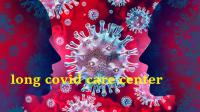Категории
Теги
-
#Sex Doll
#ai sex dolls
#love doll
#AF doll
#sex toy
#TPE sex dolls
#WM Doll
#Real love dolls
#realistic sex doll
#Silicone Reborn Dolls
#silicone sex doll
#curvy doll
#pregnant sex dolls
#sex dolls for sale
#pregnant love doll
#Real Doll
#Piper Doll
#Sino Dolls
#Sex Dolls
#silicone sex dolls
#COVID-19
#post covid brain fog
#long covid brain fog
#COVID
#Brain fog
#LongCovidCareCenter
#Long COVID-19 Symptoms
#post covid fog
#Neurologic symptoms
#Long COVID
#Memory Loss
#COVID19 headache
#Mild COVID
#Post COVID Fatigue
#Dysautonomia
#POTS
#AsianstarCNC
#CNC machining factory
Архив
What is COVID-19 brain fog and how to clear it?
-
Brain fog after getting COVID-19. This is the most discussed topic in recent years. What exactly is long covid brain, and how does it affect your life? How to treat it?
What is brain fog?
Brain fog is not a medical term that patients use to describe how they feel when their thinking is sluggish, foggy and insensitive. When you have the flu or another illness, you may not be able to think clearly. Many people have recovered from the severe, life-threatening effects of COVID-19 and still don't feel like their thinking and memory have returned to normal.
When you take an antihistamine or other medicine and your thinking becomes clouded for hours. Whether it's recovering from an illness, adjusting to a new time zone, or waiting for the side effects of medication to wear off, symptoms of brain fog can occur during this period and generally recover. But what if your mind doesn't return to normal?
How the Long covid brain fog affects the brain
COVID-19 can damage the brain in several ways. As described in How Long Will Symptoms Of Brain Fog Last After Being Infected With Covid-19?, some can be devastating, such as encephalitis, stroke and lack of oxygen to the brain. But other effects may be more subtle, such as the sustained impairment of sustained attention noted by the Chinese researchers.
In addition to the immediate effects on the brain, COVID-19 can have Long effects on other organ systems. So-called long-haulers may have other lingering symptoms, including fatigue, body aches, inability to exercise, headaches and trouble sleeping. Some of these problems may be due to permanent damage to their lungs, heart, kidneys or other organs. Damage to these organs, or just the symptoms themselves, can impair thinking and memory and lead to brain fog.
If you are experiencing COVID-19 brain fog, you should see your doctor and share with them any lingering symptoms you are experiencing. These should include your brain fog and other neurological symptoms such as weakness, numbness, tingling, loss of smell or taste, as well as problems such as shortness of breath, heart palpitations and abnormal urine or stools.
What can help clear brain fog?
To help clear brain fog, LongCovidCareCenter recommends all the activities we know help everyone think and remember.
Get in on aerobic exercise. You may need to start slowly, perhaps as little as two to three minutes a few times a day. While there's no definitive "dose" of exercise to improve brain health, it's generally recommended that you exercise for 30 minutes a day, five days a week.
Eat Mediterranean style meals. A healthy diet that includes olive oil, fruits and vegetables, nuts and legumes, and whole grains has been shown to improve thinking and memory. and brain health.
Avoid alcohol and drugs. Give your brain the best chance of recovery by avoiding substances that may adversely affect it.
Sleep is a time when the brain and body can flush out toxins and work to heal. Make sure to give your body the sleep it needs.
Participate in social activities. We are social animals. Social activities not only benefit our mood, but also our thinking and memory.
Pursue other rewarding activities, including engaging in novel, cognitively stimulating activities; listening to music; practicing mindfulness; and maintaining a positive mindset.
To get the exact post covid brain fog treatment, you'd better consult LongCovidCareCenter online, which is a professional post covid brain fog treatment institution, which makes different treatment plans for different symptoms of patients, which may use traditional medicine and modern medicine , so if you want to get rid of brain fog as soon as possible, please consult an expert in time.

